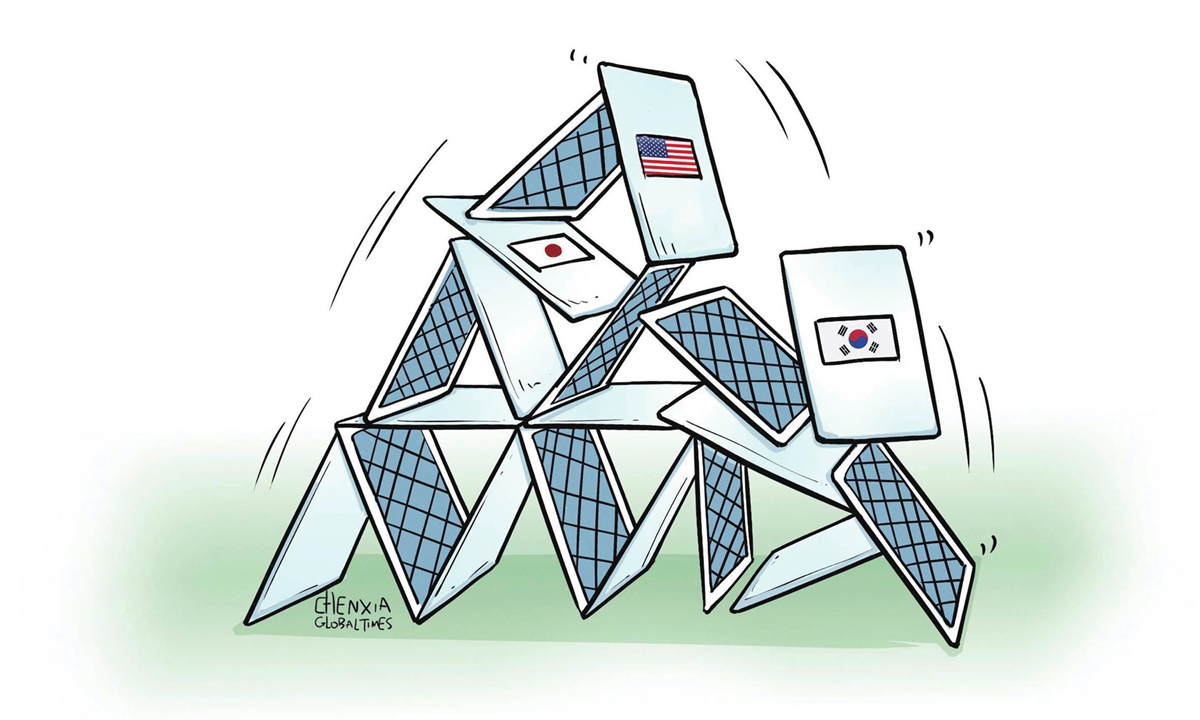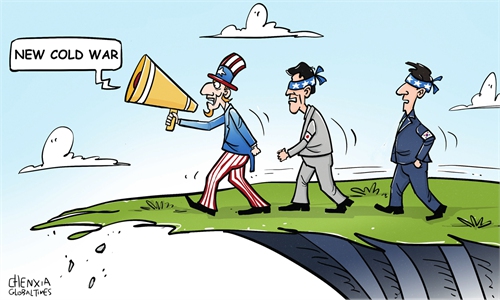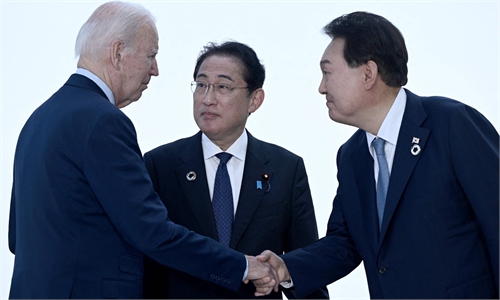
Illustration: Chen Xia/GT
The Camp David meeting of the heads of state from the US, Japan and South Korea released a message indicating that Japan and South Korea will tie themselves more tightly to the US chariot of global containment against China, which is bound to have a severe impact on economic and trade cooperation in the region.After the pandemic, distrust among the China, Japan and South Korea caused by geopolitical divisions has reached a critical point. It is crucial to prevent further deterioration and rebuild trust, especially in the economic and trade sectors. Identifying and strengthening existing cooperative achievements is essential despite pressure from the US. This will directly impact the economic development of the three countries and determine their ability to collaborate amidst competition.
The 2020 figures show that China, Japan and South Korea combined have more than 1.5 billion people and an economy totaling more than $21 trillion. The Regional Comprehensive Economic Partnership, launched in 2022, brings the three economies of China, Japan and South Korea into the same FTA framework for the first time.
These three countries are immediate neighbors and have forged an unprecedentedly close relationship in terms of economic and trade development over the past decades of China's rise. They have simultaneously become the most important economic engines regionally and globally.
For the first time in five hundred years of Western expansion, Asia has developed economic power. But unfortunately, the Cold War did not end in Asia, as evidenced by the 38th parallel.
This is why the US can still capitalize on the security issues that developed in Asia during the Cold War by once again attempting to bring together Japan and South Korea, two of Asia's major economies, tightly, this time to counter its main strategic rival China.
The Camp David statement shows that Japan and South Korea, following the US, may view China as a significant threat, rival, and potentially an enemy. The division of the region is imminent.
The Camp David statement appears to be a repetition of the same old anti-China rhetoric, but the consequences of such drastic measures will inevitably erode mutual trust among the three nations in economic and trade cooperation. The split between China, Japan and South Korea will harm current economic and trade connections. This split goes beyond geopolitical changes; it impacts the development and future of the world's leading economies. It is a significant turning point for China, South Korea and Japan.
To ensure the US maintains control over the global industrial supply chain and secures its dominance in the world economy, science and technology, as well as market share, Washington thinks it is vital to restrict the growth of China.
For South Korea and Japan, this would significantly disrupt their economic structure and layout. The policy of containment against China in areas such as technology and chips is not what preserves the order claimed in the statement but rather seriously disrupts the order of economic development in this region.
There is indeed competition between China, Japan and South Korea, but there is even more cooperation.
If cooperation is sacrificed for Japan and South Korea to serve as pawns to consolidate US dominance and contain China's development, they are bound to lose China's trust.
The US strategy against China has actually evolved into a long-term tug-of-war between the two industrial powers going their separate ways. With the existing strength of the US, both industrially and scientifically, it is now impossible to completely dominate the entire Asia-Pacific region.
While China's economic dominance in the region and its global ascent is inevitable, the rise of other countries in the area, including ASEAN, is also unavoidable. Camp David's stance creates a rift against the overall trend of Asia-Pacific development.
If Japan and South Korea place their bets on the side of the US, who will be the main casualty in this tug-of-war over the century?


